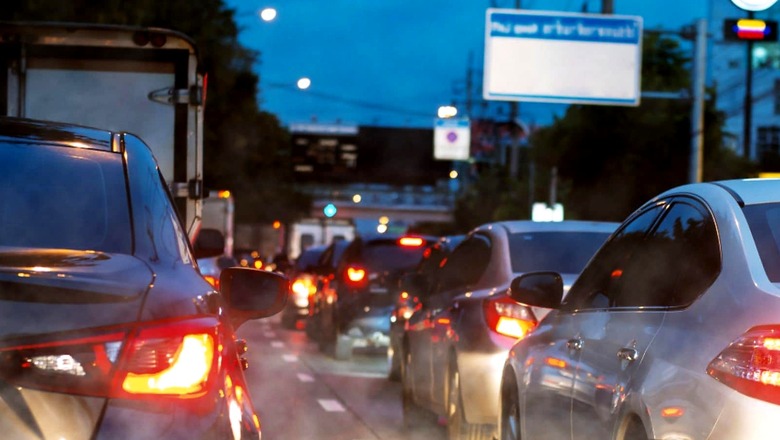
views
For a very long time, residents of large cities have struggled with pollution. In addition to harming the respiratory system, prolonged exposure to air pollution, especially dust from construction work during bad weather, can result in heart and neurological problems such cardiac arrests, strokes, and gastrointestinal problems. Now, a recent study conducted by scientists from the Universities of Victoria and British Columbia shown that even little traffic pollution might damage brain function within hours.
According to a study that was written up in the journal Environmental Health, even two hours of exposure to diesel pollution causes a decrease in functional connectivity in the brain. It provides the first concrete evidence of how air pollution affects human brain connections in a controlled experiment.
25 healthy adults were studied by being temporarily exposed to diesel exhaust and filtered air at various intervals in a lab setting. Brain activity for all subjects was measured before and after each exposure using functional magnetic resonance imaging.
The default mode network (DMN), a collection of interconnected brain areas important for memory and internal thought, was the subject of the study. The results demonstrated that after exposure to diesel exhaust as opposed to filtered air, participants had decreased functional connectivity in multiple DMN regions.
“We know that altered functional connectivity in the DMN has been associated with reduced cognitive performance and symptoms of depression, so it’s concerning to see traffic pollution interrupting these same networks,” said Dr. Jodie Gawryluk, a psychology professor at the University of Victoria and the study’s first author. In order to properly comprehend the functional effects of these modifications, he claimed that more research is necessary. “It’s probable that they may affect people’s thinking or capacity to work,” the statement continued.
However, the alterations in the brain were only transient, and after the exposure, people’s connection returned to normal. The impacts may persist a long time if exposure is continuous, according to the researchers’ theory.
Dr. Chris Carlsten, a senior study author and professor of respiratory medicine at the University of British Columbia, stated, “The next time someone is trapped in traffic with their windows down, they might want to give it some thought. Make sure your car’s air filter is functioning properly, and if you’re walking or biking down a busy street, think about choosing a different route.”
Read all the Latest Lifestyle News here


















Comments
0 comment